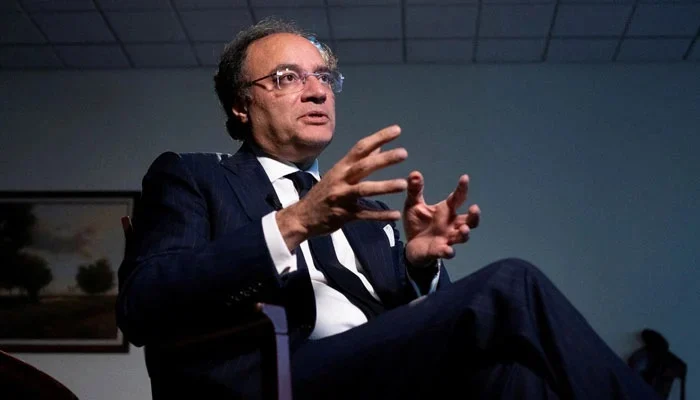China Swap Deal
Pakistan has formally requested China to enhance its existing currency swap line by an additional 10 billion yuan (approximately $1.4 billion), Finance Minister Muhammad Aurangzeb revealed.
Speaking during an interview on the sidelines of the International Monetary Fund (IMF) and World Bank Group spring meetings in Washington, Aurangzeb said the move is part of Pakistan’s broader strategy to strengthen its foreign exchange reserves and diversify financial options.
Currently, Pakistan has access to a 30 billion yuan swap line with China. “From our perspective, getting to 40 billion renminbi would be a good place to move towards […] we just put in that request,” Aurangzeb stated, highlighting the importance of expanding financial cooperation with Beijing.
China’s central bank has actively promoted such currency swap arrangements with several emerging economies, including Argentina and Sri Lanka, to bolster global yuan circulation and offer liquidity support to partner countries.
Additionally, Pakistan is making significant progress toward issuing its first Panda bond — a yuan-denominated bond issued in China’s domestic bond market.
Aurangzeb confirmed that discussions with the heads of the Asian Infrastructure Investment Bank (AIIB) and the Asian Development Bank (ADB), who are expected to provide credit enhancements for the bond issuance, have been positive. “We want to diversify our lending base, and we have made some good progress around that — we are hoping that during this calendar year, we can do an initial print,” he said.
Meanwhile, the finance minister expressed optimism about the IMF’s executive board approving a Staff Level Agreement in early May for a new $1.3 billion arrangement under a climate resilience loan program.
Approval would also complete the first review of Pakistan’s ongoing $7 billion bailout program, resulting in an immediate $1 billion disbursement, which has been instrumental in stabilizing the country’s economy.
When questioned about the recent tensions with India following the deadly attack that killed 26 people at a tourist site, Aurangzeb acknowledged that the situation was “not going to be helpful” for regional economic stability.
He noted that Pakistan’s retaliatory measures, such as closing its airspace to Indian airlines and suspending trade ties, coupled with India’s suspension of the 1960 Indus Waters Treaty, have further strained relations.
Trade between the two neighbors had already dwindled significantly, amounting to just $1.2 billion last year. Nevertheless, Aurangzeb remained cautiously optimistic about Pakistan’s economic trajectory, forecasting around 3% growth for the current fiscal year ending June 2025, with an expectation of 4-5% growth next year and a target of reaching 6% growth thereafter.










